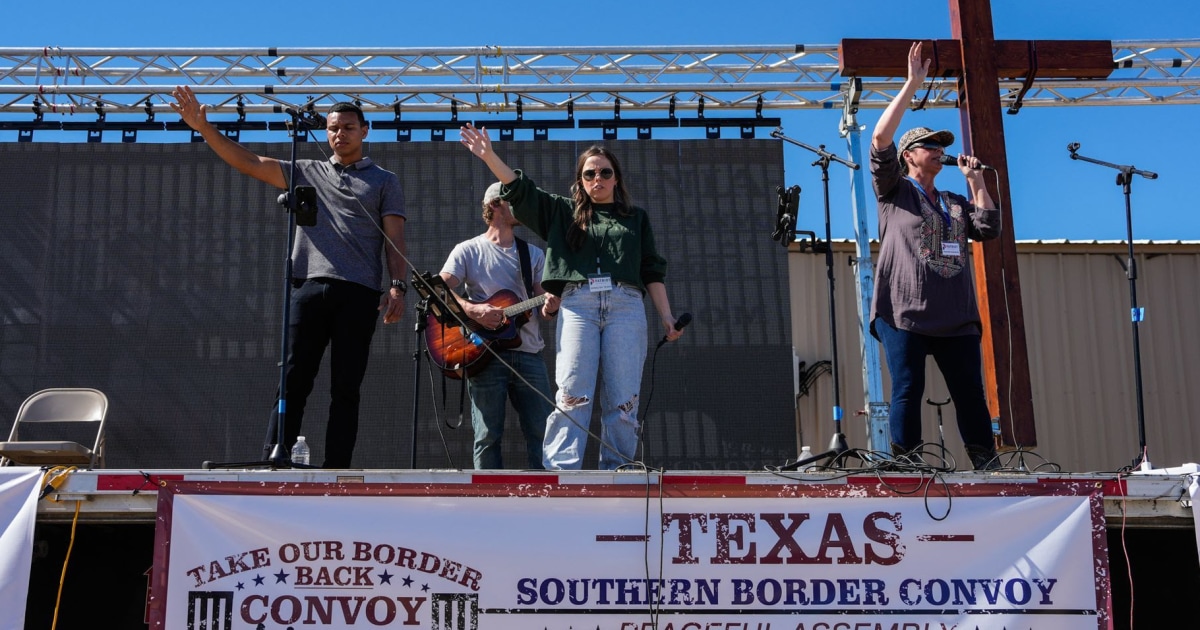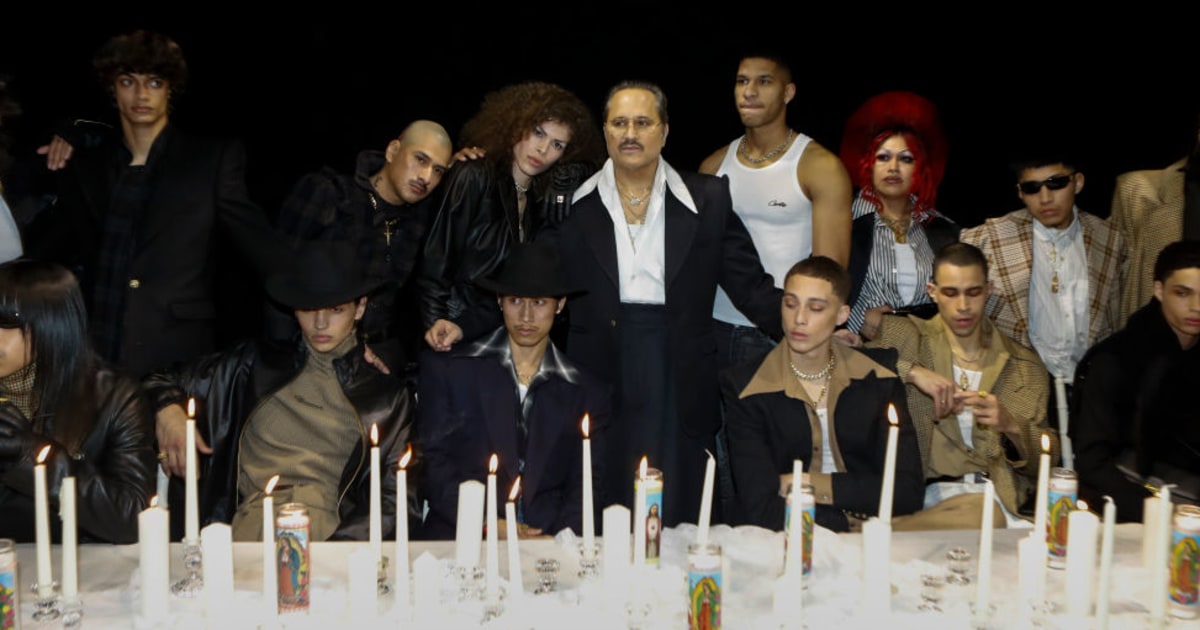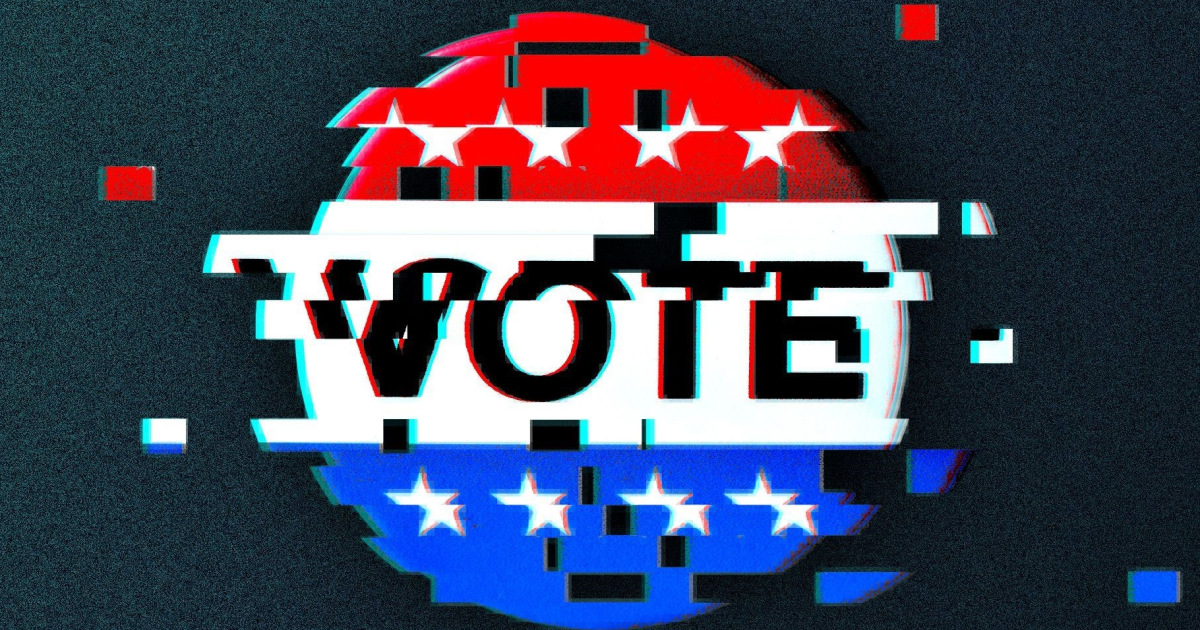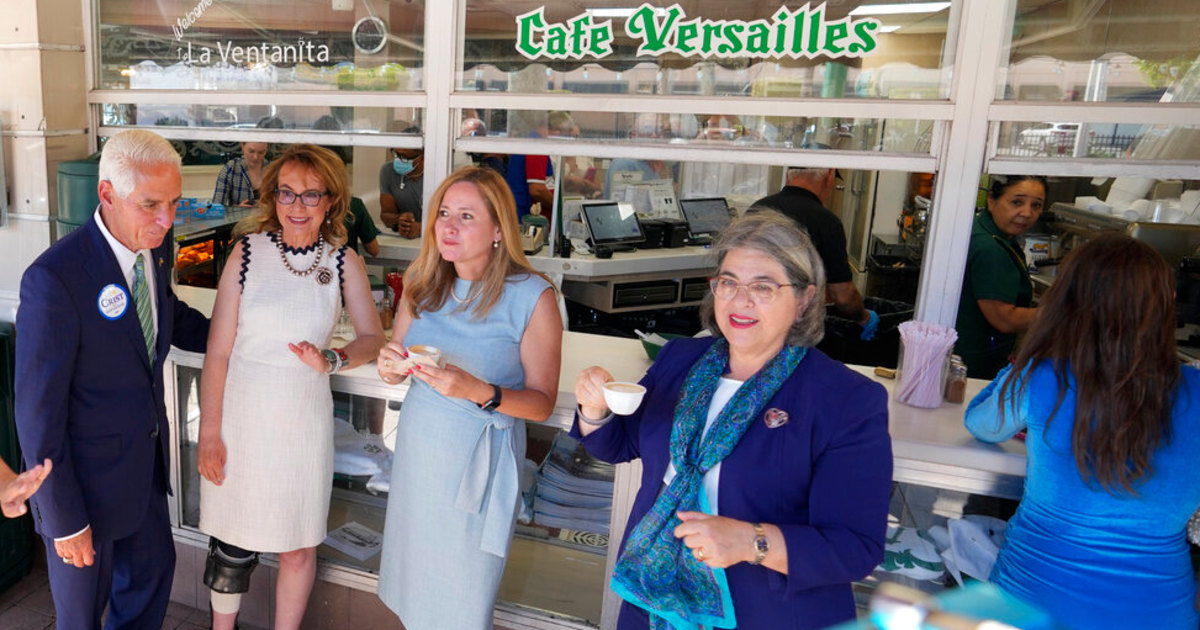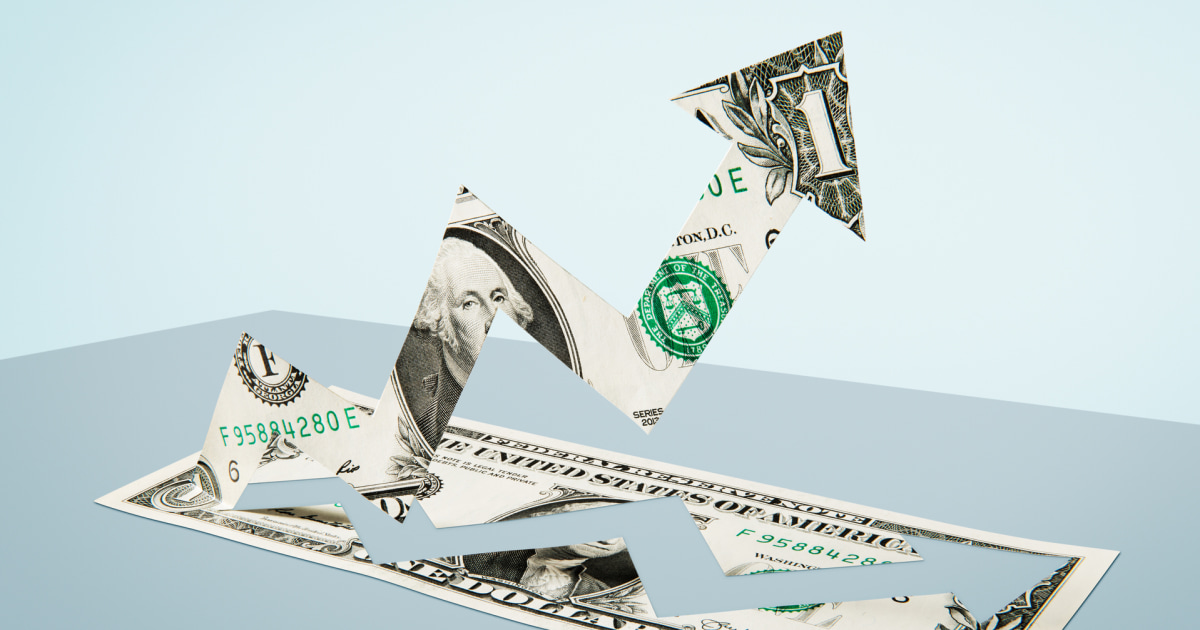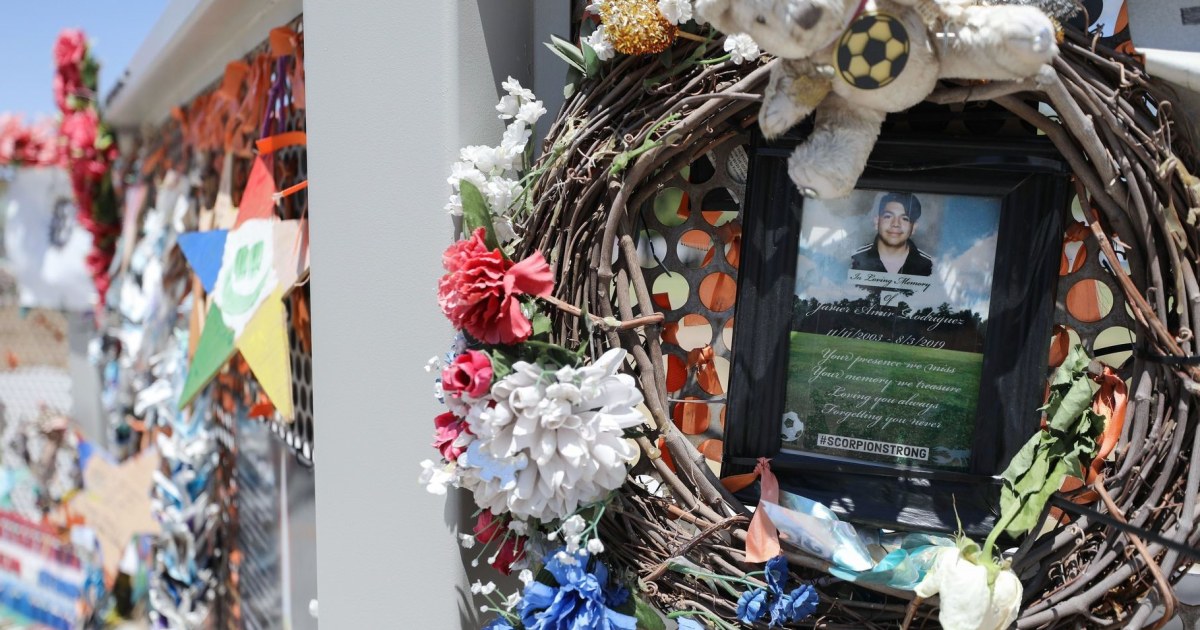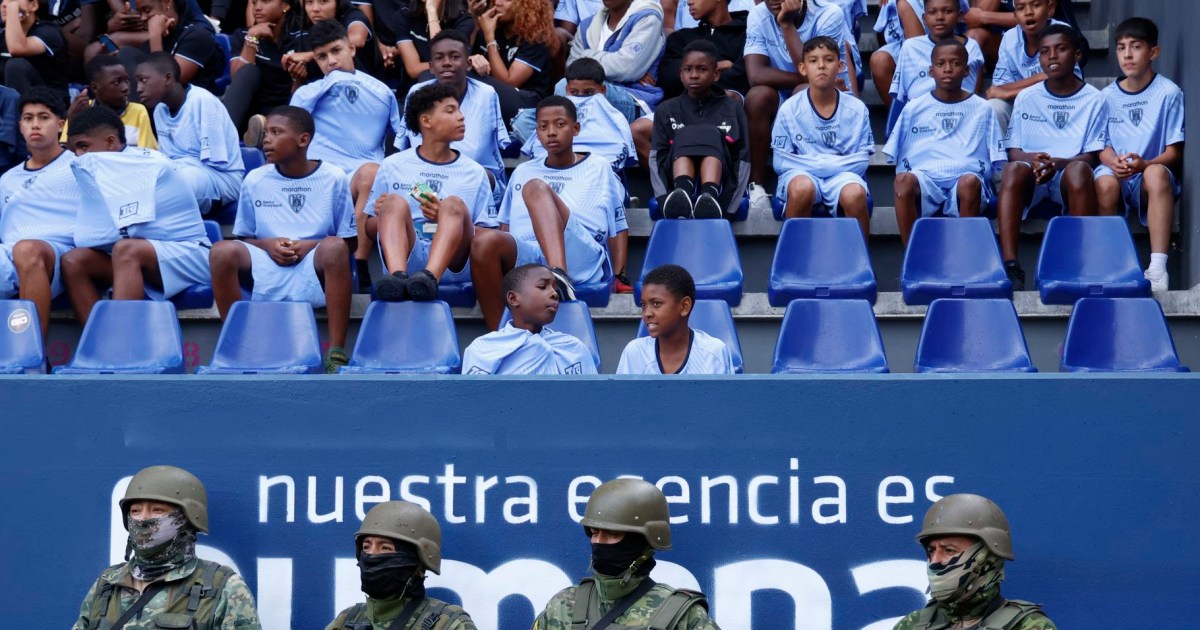By Marina E. Franco and Russell Contreras
Welcome to Axios Latino, a newsletter to tell you every week the stories that have a special impact on the Latino communities in the United States and in Latin America. If you are interested in subscribing and receiving the newsletter in your email (in English), you can do so by clicking here. Every week we will publish it in Spanish on Noticias Telemundo. [Sign up here to read the newsletter in Spanish]
Before we begin
: the Biden Administration has just announced sanctions against Cuban officials for repressing protests.
1 theme to highlight: The road full of obstacles, and hopes, towards Tokyo 2020
Illustration by Shoshana Gordon / Axios.
Photos: Kieran Galvin (NurPhoto), Clement Mahoudeau (AFP), Patrick Smith, Sean M. Haffey / Getty Images
With the start of the Olympic Games
, athletes from more than 20 Latin American and Caribbean nations culminate a journey with obstacles higher than athletic hurdles, such as the lack of facilities and institutional support, or violence in their countries.
Why it matters
: The coronavirus pandemic affected all the Olympic federations in the world, but before that the Latin American and Caribbean ones were already among the most backward and with insufficient budgets.
Colombian medalists Mariana Pajón, a BMX cyclist, and Óscar Figueroa, a weightlifter, had to launch the # NoRecortenMisSueños campaign so that the Government would not take away funds with which it would be more difficult to classify.
The Colombian Congress ended up agreeing with them.
The Guatemalan marcher Érick Barrondo, the only medalist from his country, until recently had to appeal to the people to raise money with which to buy shoes for the marching team.
And first-time athletes like Dominican Ignacio Vásquez, the first from his country to qualify to compete in Olympic rowing, have to work as a fisherman to live.
Notable:
As the coronavirus continues to hit Latin America and the Caribbean with force, many athletes looked for alternatives to train, such as going to another country.
The triple jumping Yulimar Rojas, from Venezuela, and Caterine Ibargüen, flag bearer of Colombia, could repeat on the podium.
But for this they trained in Spain and Portugal, respectively.
The boxer Eldric Sella Rodríguez is among the more than five million Venezuelans who have had to flee in search of asylum elsewhere due to the sum of the crisis in the South American country.
On this occasion, he will compete as part of the Refugee Athletes Team, who carry the Olympic flag as they cannot qualify for any country given their status as asylees.
The debuts
: Several sports will debut at these Olympics with Latin American and Caribbean athletes well placed to win a medal.
Among them are the surfers Lucca Mesinas, Peruvian and current Pan American winner;
the Costa Rican Brisa Hennessy;
and the Brazilians Gabriel Medina, Italo Ferreira and Filipe Toledo.
The Mexican Juan Diego García is world champion of parataekwondo, a sport that makes its debut in these Games.
On the skateboard, Puerto Ricans Steven Piñeiro and Manny Santiago will exhibit their tricks already winners in X-Games competitions.
2. Another point of view on the violence in Mexico
A scene from "Night of Fire (Prayers for the Stolen)" that was adapted from the book "Ladydi" and produced by the same team behind "Roma". Pepper Films / The Match Factory
Recent films and series
are changing the approach to portray violence in the fight against drug trafficking in Mexico, after several years of series where criminals were vaunted and the participation of the authorities in their operations was not directly pointed out.
More details
: Two films that have just won accolades at Cannes are just trying to change the point of view.
Night of Fire
focuses on a group of girls whose lives are spent under constant threat from drug traffickers and soldiers.
The civil
is based on the true story of a mother who searched for her kidnapped daughter when the authorities failed to do so.
Another film nearing release,
Sin Señas Particulars
, won awards at the Sundance Film Festival for its portrayal of a mother in search of her missing son.
And the recent Netflix series
Somos
talks about a massacre that was hidden for years but focusing on the last days of some of the 300 murdered people and not on the homicides.
In her own words
: "Telling these stories is the way not to forget, to look again, reflect and question," says Tatiana Huezo, director of
Noche de Fuego,
"drug violence is the monster that is there devouring, but we must not thus forgetting the real girls and women who face it ”.
The background
: Film projects come when reality continues to be heartbreaking.
In the Mexican state of Tamaulipas, an extermination camp with thousands of remains of people was recently found, in an area very close to Brownsville, Texas.
There are increasing reports of people who were disappeared while trying to travel between Monterrey and Nuevo Laredo, two cities in the Mexican north near the border.
3. Latino children are left without health insurance protection
Latino children in the United States are
twice as likely
to lack health coverage compared to non-Latino children, according to an analysis by the Georgetown University Center for Children and Families.
Will Chase / Axios
Why it matters
: More than 1.8 million Latino children had no health insurance since before the pandemic hit, which has hit Hispanic communities particularly hard in terms of infections, deaths and unemployment.
A third of the children who have died in the United States from coronavirus were Hispanic or Latino, according to data from the Centers for Disease Control and Prevention.
And three of the fourths hospitalized last year with severe COVID-19 cases were a Hispanic or black child, according to a study.
The Big Picture:
The lack of coverage for children has gotten worse in recent years, even more so in states that did not expand access to Medicaid for low-income people.
In Texas, one of those states, nearly 18% of Latino children did not have health insurance, the highest rate in the country.
4. Hispanics are missing in STEM jobs
Latino workers
have the greatest disparity in representation in the fields of science, technology, engineering and mathematics (STEM), according to data from the Pew Research Center.
In numbers
: Hispanics account for 8% in STEM fields despite accounting for 17% of the entire workforce in the United States.
And the gap is "unlikely to narrow" given trends in education, according to Pew.
Read between the lines
: Latino students have the same levels of interest in these topics and careers as non-Hispanic whites or Asians, but in high school they have less access to advanced classes that would prepare them to continue studying in it, according to a report of the Hispanic Heritage Foundation.
In addition, students who do have greater access to these types of classes have less confidence in their STEM skills due to the lack of mentors and comments they have received about their possibilities.
5. Cubans facing summary trials for daring to protest
The Cuban regime is conducting trials
behind closed doors, without lawyers and without detailing charges for up to 30 people at a time in its response to the mass protests.
A young man, later identified as the university student Leonardo Romero Negrín, is detained during the July 11 protests in Havana.
Yamil Lage / AFP via Getty Images.
More details
: An international legal organization warns that the protesters, and even people who were arrested when they were only near the protests without necessarily participating, are being sentenced for alleged "public disorder" in this modality of accelerated trial.
In figures
: So far it is reported that more than 500 people are detained, at least twelve of them are minors who have not even been able to communicate with relatives.
Reports of beatings and mistreatment of these people, including teenagers, are emerging as the internet blackout imposed by the regime eases.
The general situation
: Cuba currently continues to have the highest rate of COVID-19 infections in Latin America, one of the reasons why so many people came out to protest on July 11.
"They are already making summary trials": Cuban journalist denounces the repression against protesters
July 22, 202102: 06
7. The challenges for the new Peruvian president
Pedro Castillo was confirmed
this week as the winner of the second electoral round for the presidency, after more than a month of bitter disputes with allegations of alleged fraud.
But the biggest challenges are yet to come.
What is happening
: Peru faces concurrent crises, as it has the highest per capita death rate from coronavirus in the world, the pandemic plunged a third of the population into poverty and distrust of political institutions continues to grow.
Castillo will be the fifth Peruvian president in just five years, after several removals, impeachment attempts and resignations of previous leaders over allegations of corruption or police brutality.
He will face a country that was deeply divided by vote challenges and with a fractured Congress: the force that put him as a candidate, Peru Libre, has 37 seats while the rival Fuerza Libre and its right-wing allies have 49 seats.
What to expect
: The former teacher union leader has said that an initial focus for his presidency will be to promote a new constitution "to end the historical discrimination suffered by our Andean, Amazonian, Afro-descendant peoples and our populations vulnerable to sexist, class and violence violence. racist".
He has mentioned an emergency plan against the coronavirus with more vaccinations and intensive care units, as Peru faces a double blow from the lamba and delta variants.
The latest
: Castillo will take office on July 28, when Peru will celebrate the bicentennial of its independence.}
7. Former Central American presidents once again in the crosshairs of justice
Porfirio Lobo, president of Honduras from 2010 to 2014, walks in front of police stationed outside the Tegucigalpa court where former first lady Rosa Bonilla was on trial in August 2019. Orlando Sierra / AFP via Getty Images
Porfirio Lobo, Honduran president
between 2010 and 2014, was sanctioned again by the United States this week, this time with a travel ban for him and his family on charges that he collaborated with drug traffickers during his tenure.
Why it matters
: Lobo is one of 50 officials named on the Engel list, a State Department document that identifies Central American officials suspected of committing serious crimes.
More sanctions are foreseen for the other persons named there.
The current Honduran president, Juan Orlando Hernández, has been informally targeted for working with drug trafficking groups, as has Lobo, especially since his brother Tony Hernández was tried and sentenced in the United States.
Another former president, Salvadoran Tony Saca (2004-2009) also made noise this week by declaring before a special legislative committee that perks and "bonuses" taken from public money were given during his tenure to legislators, party leaders and even magistrates of the Court. Supreme
Saca is already serving a 10-year sentence for diversion of funds.
In figures
: Corruption is a factor of emigration from Central America.
In 2019, 350,000 Salvadorans and Hondurans were intercepted by the Border Patrol and this year the figure is already close to 270,000 intercepted.
8. Maneuvering the waves after deportation
These deported women are pioneers restoring surfboards off the coast of El Salvador
June 29, 202101: 48
A group of Salvadorans
who were deported from the United States have found work that was not previously available in their country, manufacturing and repairing surfboards.
More details
: They are part of a program of the Foreign Ministry that seeks to prevent women from emigrating when they have a job.
El Salvador is becoming an international attraction for surfing, especially on the beaches of El Tunco and El Sunzal, where women work.
Thanks for reading, until next week.
Do you want to see any of the previous editions?
- Behind the multiple crises due to COVID-19 in Latin America
- A pain for the whole hemisphere
- The shedding of innocent blood
- A heat-battered border thirsts for protection
- What worries Hispanics most in the US
- The effects of trying to study when there is COVID-19


